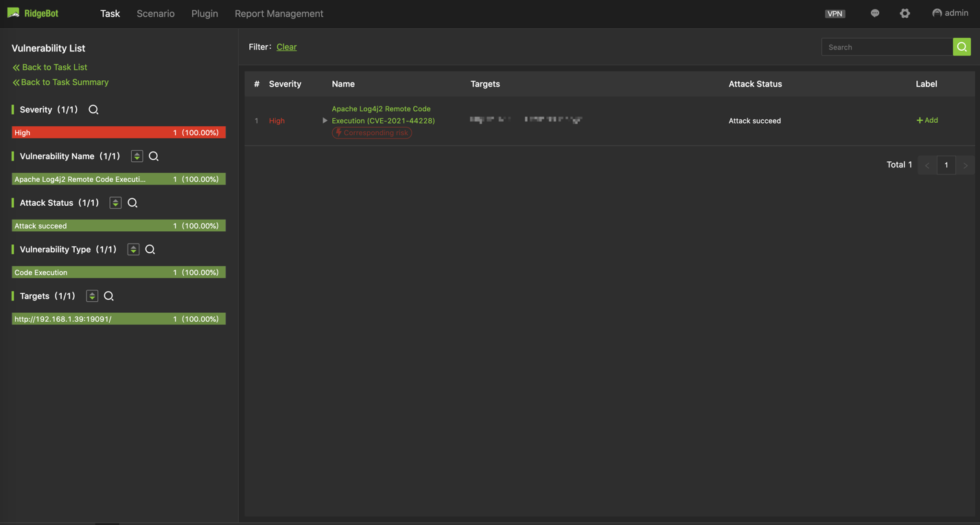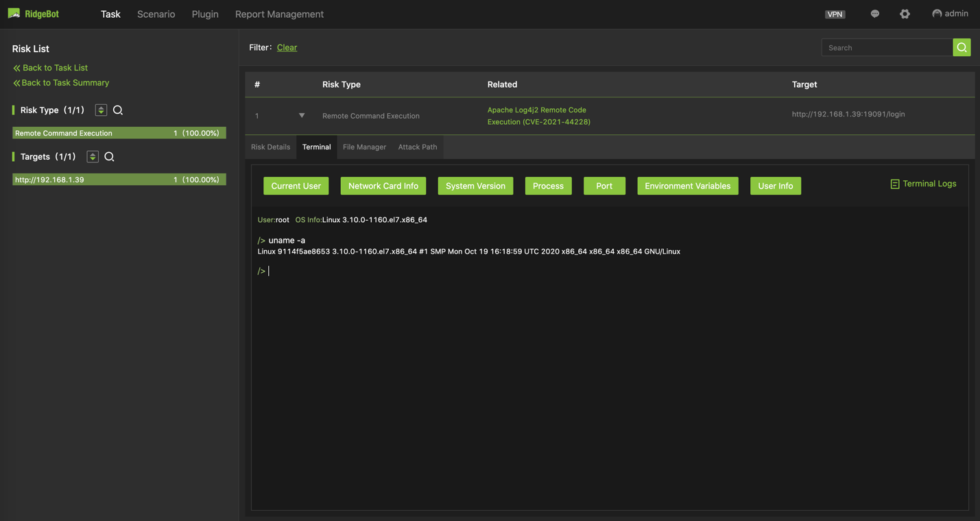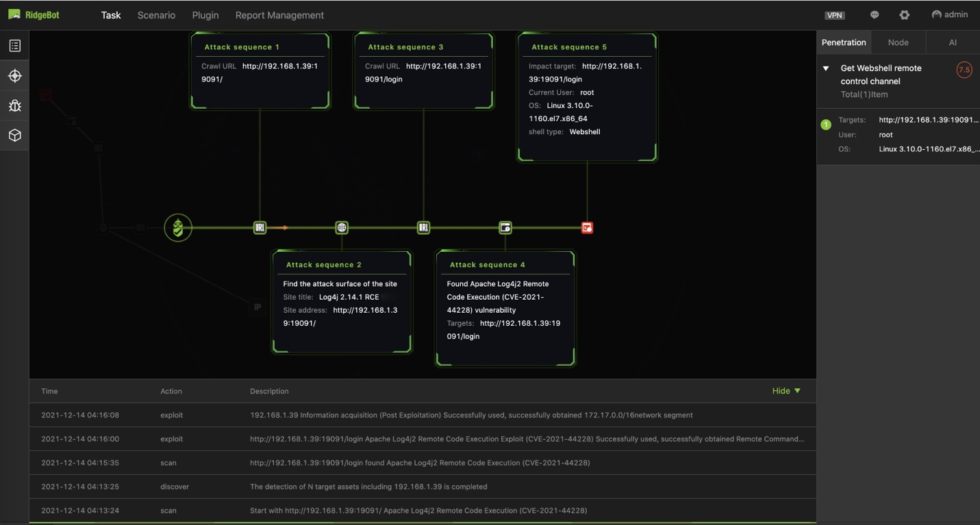Log4jは、ログ情報を記録するビジネスシステムを含むほとんどのJavaアプリケーションで使用される一般的なログライブラリです。 この脆弱性は簡単に悪用できるものであり、リモートコード実行を可能にし、ログメッセージを制御して悪意のあるコードを環境に読み込んで実行することができます。
脆弱性の理解。
ログフレームワークは通常、純粋にデータとして考えられますが、Log4j 2.0には「ルックアップ」が含まれており、これには Javaネーミングおよびディレクトリインターフェース(JNDI)ルックアップは制限されておらず、そのために脆弱性が生じました。 JNDIはディレクトリサービス用のAPIで、管理者がLDAPやDNSとインターフェースし、データやその他のリソースを検索することを可能にします。 悪意のあるアクター、たとえそれほど高度なハッカーでなくても、信頼されていないJavaクラスを読み込むと、被害者のサーバーが不正なコードを実行する可能性があります。
RidgeBotがどのように役立つか。
Ridge Securityは、RidgeBot 3.8以降、Apache Log4jの脆弱性を検出し、悪用する機能を追加することで、RCEがネットワークに侵入するのを防ぎます。
RidgeBotを使用することで、ウェブサイトサーバーが脆弱であるかどうか、また環境が悪用を許可しているかどうかを安全にテストできます。 システムをパッチ適用したとしても、パッチが正しく機能しているかどうかをテストし、環境内で適切に動作していることを確認することをお勧めします。 この脆弱性テストを実施することで、ハッカーの一歩先を行くことができます。
これらのスナップショットは、RidgeBot 3.8の脆弱性テストがセキュリティ管理者に提供する内容を示します:

図1。 Apache Log4j-2 RCE脆弱性が発見されました。

図2。 成功した悪用の証拠 – 脆弱なウェブシェル

図3。 攻撃経路の可視化
- まず最初に、脆弱性と自分の環境に対するリスクを理解することが重要です。
- 現在利用可能なパッチをダウンロードすることが、セキュリティチームがリモートコード実行のリスクを排除するために取ることができる最も効果的な対策です。
- 必要に応じて、ApacheサーバーにインストールされているLog4jのバージョンを確認し、必要であればリモートサーバーへのルックアップ機能を無効にします。
- Ridge Securityに連絡して、検証テストを依頼してください。
詳しくはこちら。